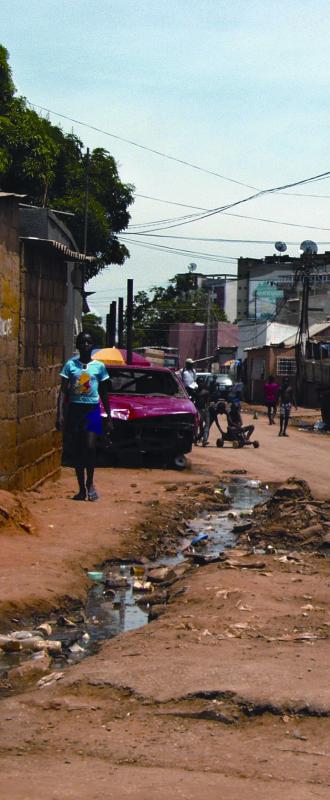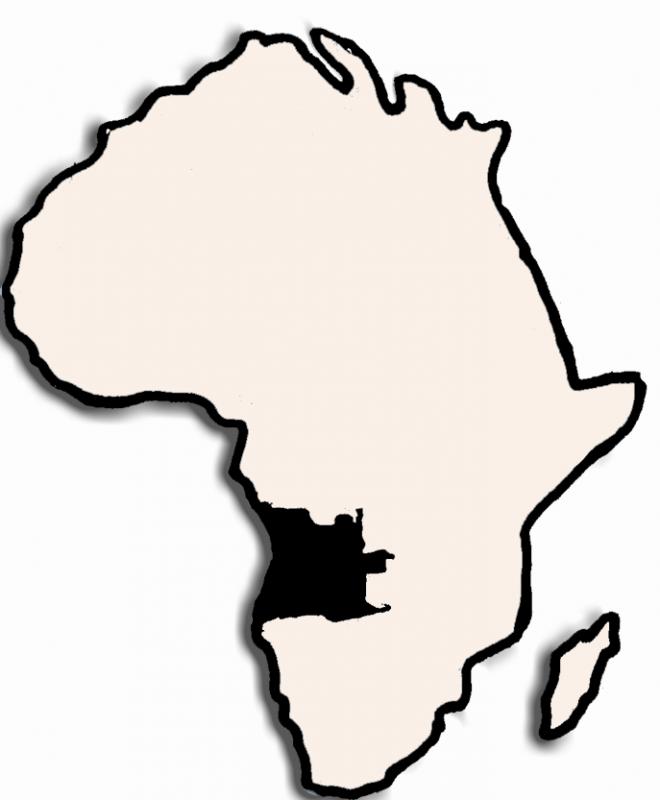Faces Of The Other
By Father Raymund J Festin SVD

Angola is a hauntingly beautiful country lying along a stretch of Africa’s Atlantic shoreline. It is blessed with the choicest gifts of nature: fertile land, an ocean with a plentiful supply of fish, the air is sweet, tropical fruits abound and diamonds and oil flow like milk and honey. In the remote rural areas, time passes at a serene and soft rhythm, unperturbed by the din of war.
Sadly, Angola, formerly so idyllic, became for more than thirty years the scene of ruin and despair. After a long running struggle with the Portuguese, independence was finally won in 1975. Then, Angola’s liberation forces turned their arms against each other. The fledgling nation was ripped apart by a civil war that wrought untold suffering on her people. The many fertile fields, where the people sowed and gathered their harvest, became battlegrounds of terror and wastelands filled with landmines.
A city of refugees
From 1995 to 1997, I worked in the parish of Christ the King in Luanda, Angola’s capital, on my first mission assignment. At that time, Luanda was groaning under the weight of the teeming thousands who fled the war in the countryside and sought refuge there. It became a city of refugees who settled into shanties or makeshift houses, living in sub-human conditions, as the city’s infrastructure could not cope with the influx.
The streets were chock full of children, mostly orphans, left to fend for themselves. Disabled war veterans also roamed the streets begging for food. Many people were unemployed and eked out a living by peddling wares such as soap, sardines and socks. This climate of gloom often produced a host of other ills: street violence, assaults by armed men and car-jacking.
The reality
My first year in Angola was difficult. It was not only a period of adjustment to a new culture and country, but also an awakening of a new reality in me. During my stay at the Christ the King parish, which is one of the largest in Luanda, my work was mainly pastoral. During my visits to the sick and aged, I came in direct contact with the rasping sounds of the dying, the festering smell of the wounds of the sick and the loneliness etched in the faces of abandoned old folks.
Meeting people living in abject conditions helped me to clarify my attitudes and convictions. At first, I thought my missionary task mainly consisted in self giving, in doing something for the people. They needed me, or so I thought, and I would be there for them. Over the years, I realized that a large part of a missionary work consists in allowing the people to enter my life – letting them give what they have, no matter how humble; needing them; learning from them and allowing them to love in return.
My friends
I formed a bond of friendship with many Angolans. There is the old widow in Luanda, Guilhermina, who shares a damp, dark room across from Christ the King parish with another old woman. She attends Mass everyday and has a profound devotion to the Blessed Mother. During my first year, she became a very good friend and confidant. Her friendship helped me in my missionary life and I cannot thank her enough for the prayers she offered for me and the times she gave me a listening ear. Recently, I received a photo of her holding a statuette of the Blessed Mother, with the message: ‘A remembrance from your friend.’
Angola Map
Shinga of Tomboko is a deaf young man. He is fair game for ‘taunters’. Nobody listens to him because he cannot speak and nobody talks to him because he cannot hear. One day he came to me, smiled and said: ‘Oxhh, ahh, ohh, waaah.’ I smiled and replied, ‘Oxhh, ahh, ohh, waaah.’ He listened to me and I listened to him. From that time forward, we became very good friends. He taught me a different language.
But my best friend is Cristo, a crippled orphan with speech difficulties. We spent a lot of time together. I would take him with me in the car as I traveled around Luanda or visited the ocean. Even though I left Angola in June 2000, he continues to ‘write’ to me, although he can neither read nor write. One of his friends provides words for his thoughts.
I can’t imagine what missionary life would be like without the presence and faces of the other who are always there for me. I see beautiful experiences personified in the colorful faces of real and gentle people. After my leave, I look forward to returning to Angola. When that day comes, Shinga and I will have many things to talk about in a language exclusive to us. And Cristo and I will again sit leisurely in the wind-swept sand as we watch the impatient Atlantic waves rushing against the shore.
Father Festin is on study leave before returning to Angola. You may contact him at: K. Leopold I – Straat, 12/B, 3000 LEUVEN, BELGIUM.
